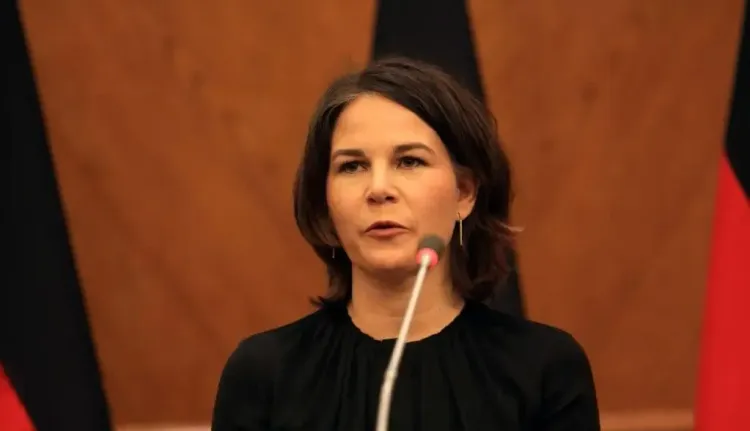Germany Reestablishes Embassy in Damascus After 13 Years

Synopsis
Key Takeaways
- Germany reopens its embassy in Damascus after 13 years.
- Foreign Minister Annalena Baerbock's visit coincided with the reopening.
- Less than 10 diplomats will be stationed at the embassy.
- Germany's move reflects a shift in diplomatic relations post-Assad.
- Other EU countries have also resumed their diplomatic missions.
Damascus, March 20 (NationPress) Germany has reestablished its embassy in Damascus after a lengthy closure of 13 years, as reported by Syrian media on Thursday. This coincided with the visit of German Foreign Minister Annalena Baerbock.
Baerbock's visit marks her second trip to Syria since the downfall of former President Bashar al-Assad's government in December 2024, and it facilitated the reopening of the diplomatic mission.
According to German media, citing Baerbock, a limited number of diplomats, fewer than 10, will be present at the reopened embassy.
During her visit, Baerbock engaged in high-level discussions with Syrian leader Ahmed Al-Sharaa, foreign affairs chief Asaad Al-Shaibani, and various representatives from Syrian civil society.
She also visited the heavily damaged Jobar neighborhood in Damascus, which suffered extensively during the civil war.
Germany had shut its embassy in Damascus back in 2012 when the brutal civil war erupted in the country.
Several other European nations, including Italy and Spain, have already resumed their diplomatic missions in the Syrian capital.
The reopening of Germany's embassy signifies a noteworthy shift following the ousting of President al-Assad by a coalition of rebel forces led by his newly appointed successor, Ahmad al-Shara. The rapid rebel offensive that ended over five decades of Assad family rule paved the way for this diplomatic initiative three months later.
However, this reopening occurs amidst severe violence, especially along the Syrian coast, which is the stronghold of the Alawite minority to which Assad belongs. Clashes between security forces loyal to the new government and supporters of the previous regime have resulted in numerous casualties. Monitoring groups like the Syrian Observatory for Human Rights report that hundreds of civilians, primarily Alawites, have perished in the ongoing conflict.
Germany, a dominant player within the European Union, joins an increasing number of countries that are reassessing their diplomatic positions following Assad's fall. Italy reopened its embassy last year, ahead of Assad's ousting, while Spain did so afterward. In December, the EU announced plans to reopen its mission in Syria, indicating its willingness to engage with the new leadership.
In January, Hungary became another EU member to restore its diplomatic presence in Damascus, while Turkey and Qatar, significant supporters of the new rebel forces, were among the first to reopen their missions post-regime change. Following this, Spain also reopened its embassy in January.










